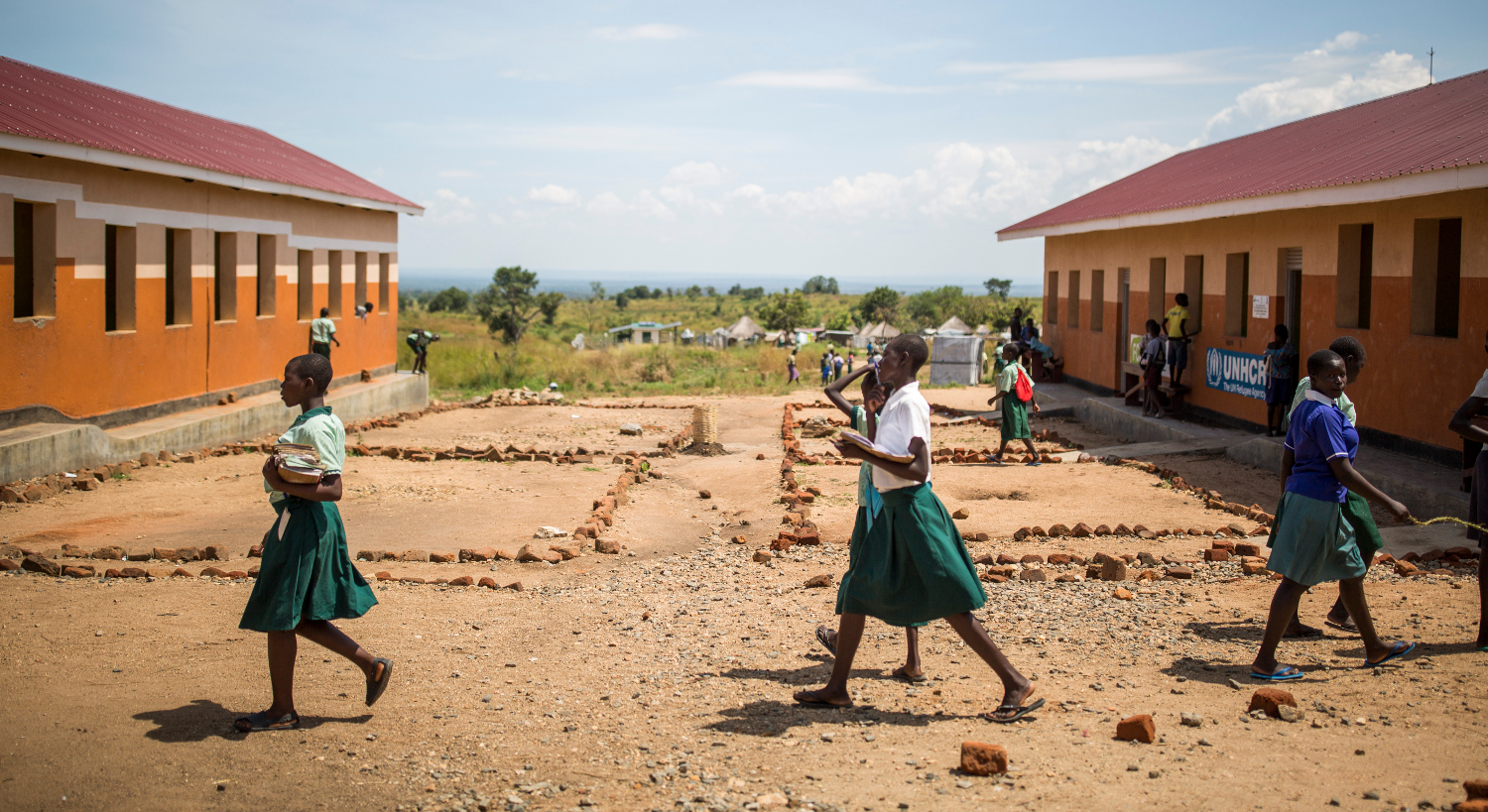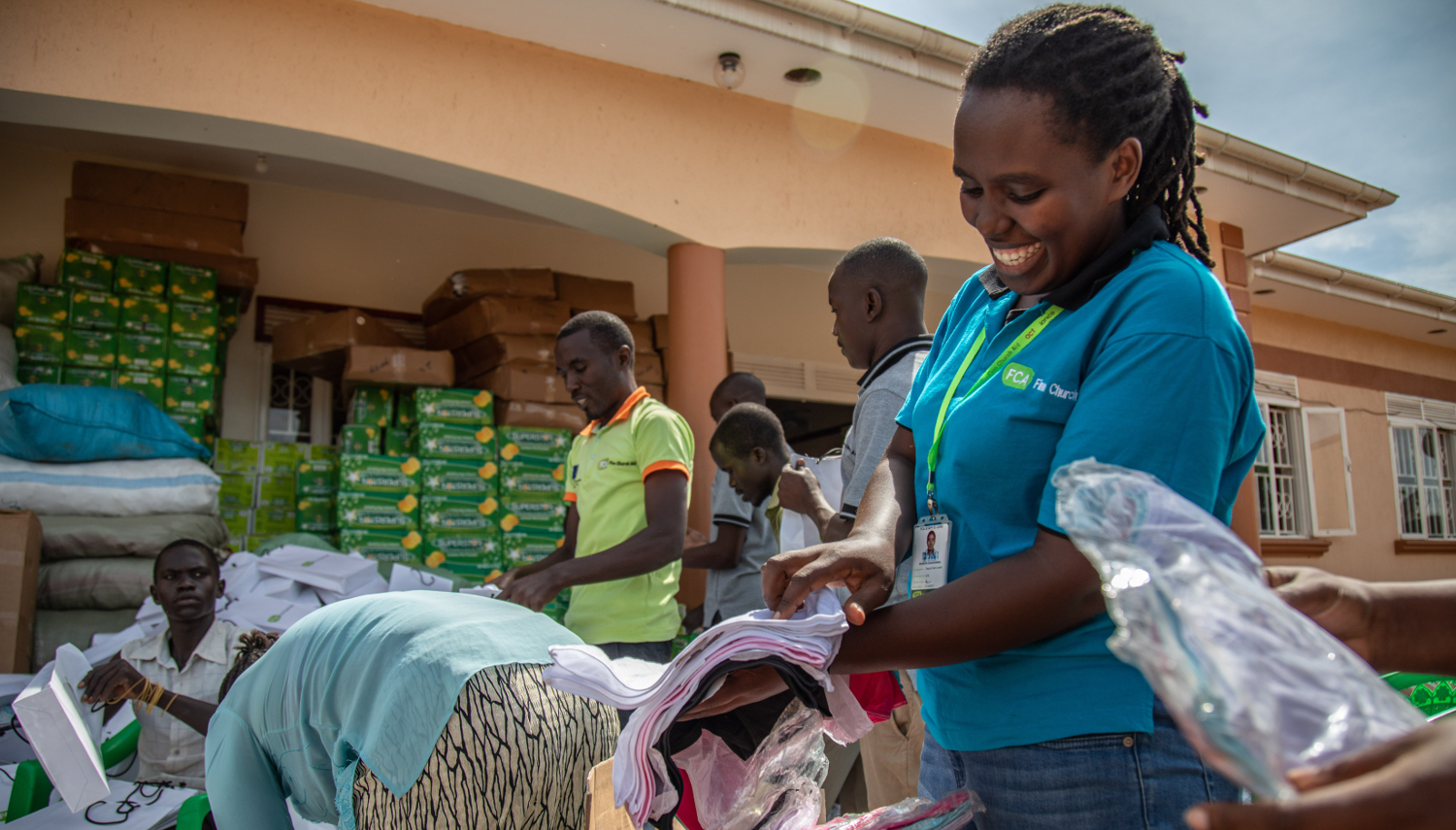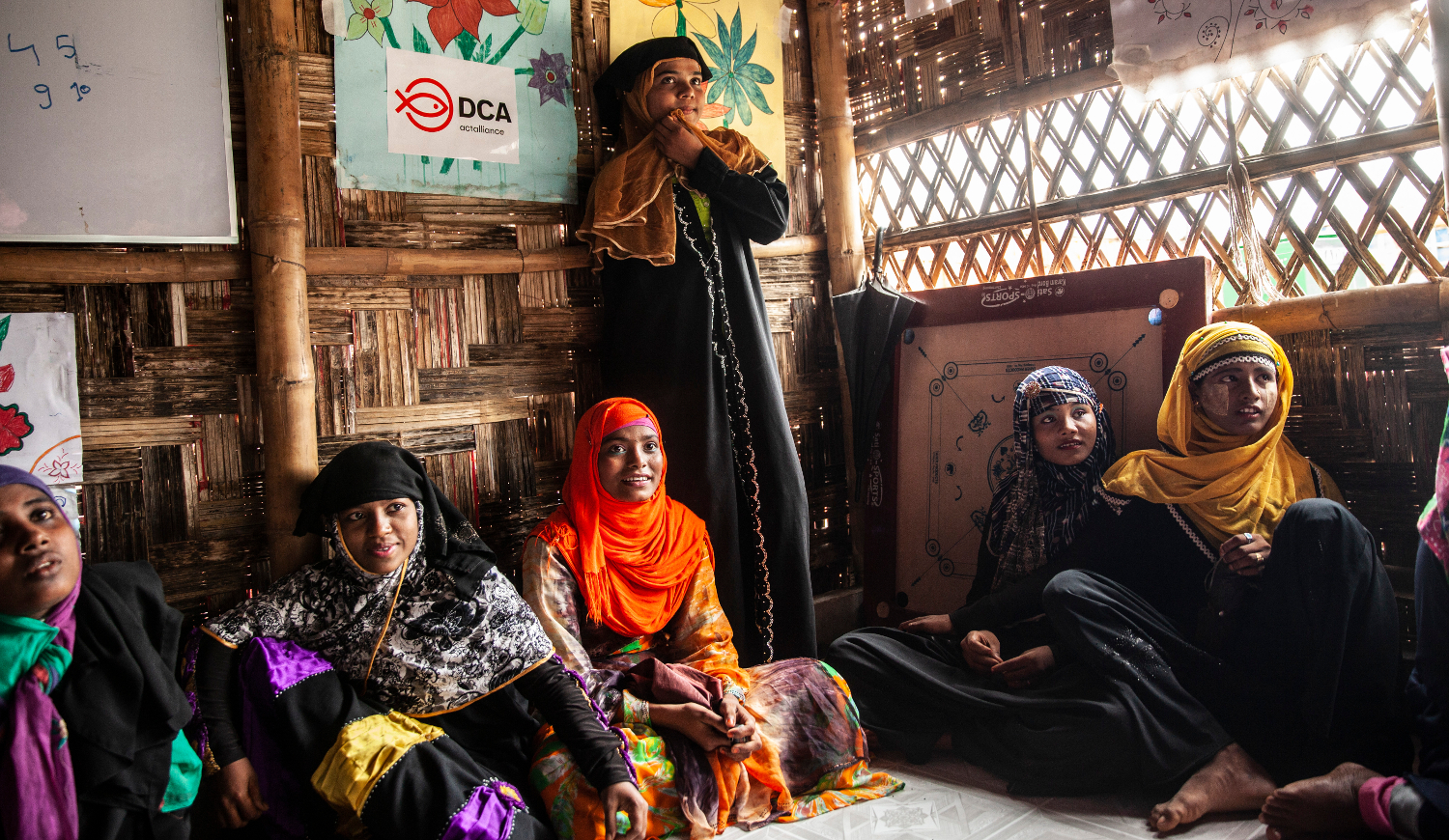Periods interfere with the education of far too many girls
Millions of girls and women living in refugee camps urgently need feminine hygiene products. They also desperately hope for access to clean water, soap and functioning door locks.
At present, roughly 30 million girls and women around the world are living as refugees, and many of them face the same question every month: how will I cope with my period this time?
Taking care of menstrual hygiene in a refugee camp setting is not easy. No proper sanitary pads are available. Or if there are, they are far too expensive to buy, at least in sufficient amounts.
The girls and women living in refugee camps in different parts of the world also have to fear for their safety. Privacy is another real problem in settings where women have to use communal toilets that are rarely even equipped with locks.
Feminine hygiene is difficult to maintain when there is no clean water for washing up. The cultural stigmatization of women as impure during menstruation also makes girls and women feel ashamed of their bodies. At worst, women and girls have to isolate themselves from their community or even their own family during their periods.

Girls attending Yoyo primary school going to classes at Bidibidi refugee settlement.
Youth learn about menstruation in school
”Not having sanitary pads, for example, has a direct impact on girls’ education,” says Project Manager Lilian Musoki from Uganda.
Musoki was involved in organising the distribution of hygiene kits in Bidibidi refugee settlement. Bidibidi has a population of 270,000 people and is one of the world’s largest refugee settlements. A city unto itself, its inhabitants have mainly fled the civil war in Uganda’s northern neighbour South Sudan.
Although menstruation and access to education may seem to have little connection, according to Musoki, they go hand in hand.
“Girls stay out of school every time they have their period. Without proper sanitary pads and school facilities for taking care of their menstrual hygiene in private, girls cannot make the most of their education.”
The problem is that their absence from school cause girls to fall behind in their studies, making it difficult for them to complete their education.
In Bidibidi refugee settlement, proper sanitary towels are hard to come by or they are too expensive for the women and girls living as refugees. That’s why women and girls often make do with whatever is on hand. In practice, it means that they resort to making pads themselves, for example, from pieces of fabric cut from old cloths.
These makeshift pads sometimes leak and lead to odours, causing embarrassment and shame for the girls. This is why the hygiene kits distributed by FCA also contain sanitary pads. A total of 19,850 girls in Bidibidi were able to obtain the FCA hygiene kit in 2019.

On Menstrual Hygiene Day last year, Finn Church Aid distributed 19 850 hygiene kits to girls in Bidibidi refugee settlement in Uganda.
According to Lilian Musoki, girls often lack menstrual knowledge.
“In our culture, talking openly about menstruation is off-limits, even between mothers and daughters. It is culturally unacceptable”, Musoki says.
Mothers also have their hands full with keeping up with housework and earning a livelihood. In FCA’s projects in refugee settlements, information has been shared, and schools also provide menstrual education.
In school, girls learn the facts about menstruation and how to maintain good hygiene. They can also turn to a designated female teacher if their period starts in the middle of the school day. Musoki says that they can ask the teacher for a sanitary pad so that they can continue with their school day.

Lilian Musoki.
“When the girls get accurate information, the shame associated with menstruation and the changes in their own bodies disappears,” Musoki insists.
For environmental reasons, some of the sanitary pads FCA provides can be washed and reused. Soap bars for washing them are included in the hygiene kits distributed in refugee settlements. Hygiene kits also include panties.
According to Musoki, FCA is providing pads because other products, such as tampons and menstrual cups, would prove too costly for local people. A tampon pack worth three US dollars is a luxury no one can afford.
Safety equals a door with a lock
For menstrual hygiene, girls need to have their own toilets where they can change their sanitary pads in private, without any fear of harassment.
The safe spaces for women and girls have also been vital to girls and women living on the other side of the world in Cox’s Bazar, Bangladesh, in the world’s largest refugee camp. There, in partnership with DanChurchAid (DCA), FCA supports safe spaces for the Rohingya women and girls who have fled Myanmar to Bangladesh.
In the safe spaces, women and girls can use clean and safe toilets with hand-washing stations and soap. In addition, they get sanitary pads that enable them to participate in the literacy and numeracy lessons offered by FCA and DCA, also during their periods.
Why are the toilets in safe spaces so important? Kaji Shahin Akter who works as the Programme Manager for Gender-Based Violence in Cox’s Bazar, says that the taboos surrounding menstruation expose women to violence.
“Traditionally, Rohingya women have used rags cut from worn-out garments as their sanitary towels. Women need to wash these either early in the morning or late at night, been conditioned by the culture to regard menstruation and menstruating women as polluted,” she says.
Such notions compel women and girls to go to the camp’s water stations after dark, exposing them to sexual or other forms of violence. Even toilets designated for women can be dangerous when inadequately monitored.

In Cox’s Bazar Bangladesh, the world’s largest refugee settlement, Finn Church Aid and Dan Church Aid have built safe spaces for women and girls.
Cox’s Bazar Education Programme Manager Margaret Goll from DCA says that even the disposable sanitary pads are problematic. They add to the issue of waste in the massive refugee camp.
“There are many kinds of problems related to menstruation in Cox’s Bazar, actually every problem you can imagine,” Goll says.
Men also need menstrual information
Menstruation puts even further limits to girls’ lives, as many Rohingya girls stop attending school after they get their first period, on average at the age of 14.
“In Rohingya culture, when a girl starts menstruating, she can only spend time with the men and boys of her own family. Many girls are also married off when they start menstruating,” says Goll.
In Cox’s Bazar refugee camp, women and girls have their own safe spaces where they are able to study and get information on menstrual health and hygiene as well as other important issues in their own lives.
Rohingyas believe that a girl or a woman is impure during menstruation and can therefore not participate in normal life. According to Margaret Goll and Kaji Shahin Akter, these attitudes are also addressed. Getting the community’s men involved in the conversations is essential.
”We have provided boys and men not only with information on menstruation but also on positive body image and positive fatherhood. In the beginning, this was difficult, and the men and boys were reluctant to join in because all of us working for the project are women,” says Kaji Shahin Akter.
Eventually, progress was made when religious leaders, such as imams, started taking part in the project.
One way to make menstruation more visible has been the annual World Menstruation Hygiene Day on 28 May.
“It has been a big event in Cox’s Bazar in previous years. This year, however, we may have to limit public gatherings,” says Goll.
Text: Elisa Rimaila
Translation: Ulla Kärki